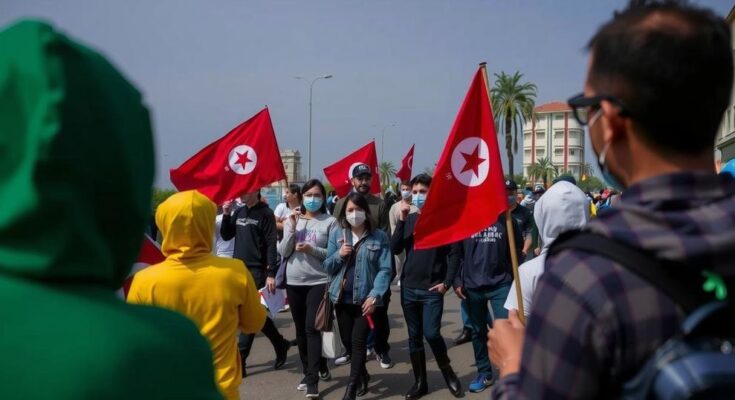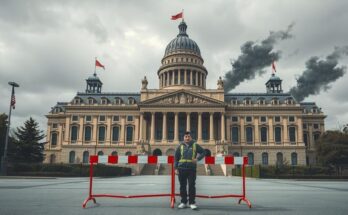Recent reports by UN experts reveal serious human rights violations against migrants in Tunisia, detailing violent intercepts at sea and harsh treatment on land. The situation has worsened under President Kais Saied’s increasingly authoritarian government, with EU financial support for border security raising ethical concerns. Calls for investigations and independent oversight signal urgent need for a humanitarian response to the crisis affecting vulnerable populations.
Tunisia is facing intense criticism for its treatment of migrants, as recent reports by UN experts reveal alarming human rights violations. These reports accuse Tunisian authorities of engaging in dangerous tactics while intercepting migrants at sea, detailing instances of violence, intimidation, and neglect. Notably, 189 individuals lost their lives in the Mediterranean, with many more reported missing or subjected to enforced disappearances, particularly among sub-Saharan migrants. Migrants, including vulnerable groups such as children and pregnant women, are reportedly taken to desolate border regions where they face physical threats from security personnel. Humanitarian groups have reported being hampered in their efforts to assist these individuals, raising further concerns about the nation’s approach. While the Tunisian government has yet to formally respond to these allegations, prior statements have denied any wrongdoing. The situation has escalated as President Kais Saied’s government adopts harsher stances against migrants, leading to claims of increasing authoritarianism since his rise to power in 2019. Much attention is focused on how these policies are exacerbated by international pressure, as EU nations still regard Tunisia as a safe country, disregarding the troubling human rights context. As part of a contentious migration pact with the EU, Tunisia has received significant funding aimed at enhancing its border security efforts. Critics argue that this funding, intended for operations and the repatriation of migrants, indirectly supports the ongoing human rights abuses in the country, essentially turning a blind eye to the plight of those seeking refuge. The European Union has called for thorough investigations into the treatment of migrants, but these requests have gone largely unanswered. The call for an independent monitoring mission in Tunisia signifies growing international concern, although the acceptance of such oversight by Tunisian authorities remains uncertain. Activists warn that shared agreements with Tunisia risk repeating failures observed in other countries, yielding tragic consequences for migrants and asylum-seekers alike.
The ongoing crisis surrounding migrants and refugees in Tunisia has drawn attention to the increasing violence and human rights violations affecting these vulnerable populations. UN experts have raised alarms about the dangerous conditions faced by migrants, especially during interception attempts at sea. The growing authoritarianism of President Kais Saied adds a complicating layer, as his government intensifies its crackdown on migrants amid significant financial support from the EU for border enforcement. Traditionally viewed as a safe haven, Tunisia’s evolving stance on migration calls into question its classification, as numerous reports reveal systematic abuses and mistreatment of people seeking asylum. International agencies struggle to foster humanitarian aid amidst increasing governmental hostility. The involvement of EU funding and agreements complicates the moral landscape, raising concerns about complicity in human rights violations.
The plight of migrants in Tunisia highlights a heartbreaking paradox where asylum-seekers face violence and disregard amid international agreements promising safety. Reports indicate a troubling trend towards harsher measures under President Saied, raising questions about the sustainability and morality of current EU-Tunisia cooperation. As the international community calls for action, the fate of thousands hangs in the balance, demanding immediate attention to uphold human rights and ensure the dignity of those forcibly displaced.
Original Source: www.dw.com



